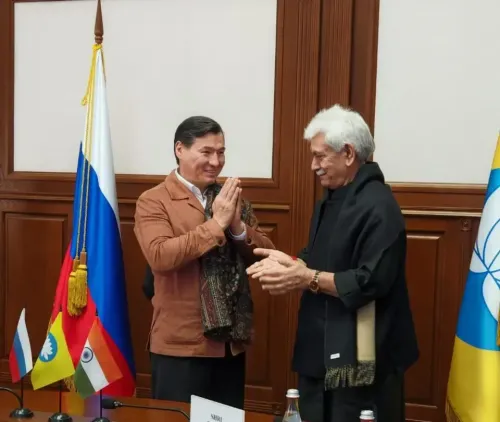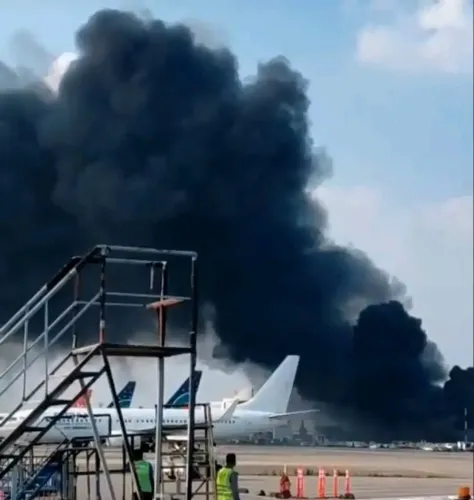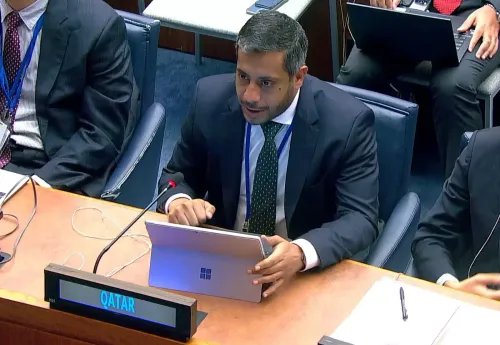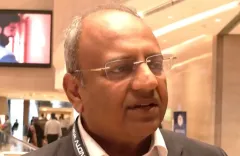What Are the Implications of Afghanistan's Defence Minister's Negotiations in Doha with Pakistan?
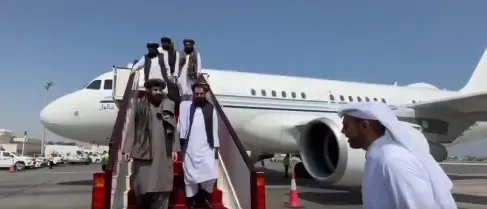
Synopsis
Key Takeaways
- High-level negotiations are ongoing in Doha.
- Escalating military actions have led to civilian casualties.
- Qatar mediates talks between Afghanistan and Pakistan.
- The absence of formal apologies complicates relations.
- Regional actors are pushing for a peaceful resolution.
Doha, Oct 18 (NationPress) A significant delegation from the Islamic Emirate of Afghanistan, led by Maulvi Muhammad Yaqub Mujahid, the Defence Minister of the Taliban regime, has arrived in Doha for critical negotiations with representatives from Pakistan, as confirmed by the Ministry of Defence.
This pivotal visit occurs against the backdrop of worsening relations between Afghanistan and Pakistan. Islamabad has been employing military force against numerous regions in Kabul, resulting in the tragic deaths of many civilians, including women and children.
Reports indicate that approximately 200 Afghans have perished due to these assaults, while nearly 60 Pakistani soldiers have also lost their lives.
The Qatar-mediated talks between the two nations are taking place amidst a prolonged but fragile truce. Despite an agreement to cease hostilities following intense clashes last week, Afghans living along the Durand Line continue to be targeted by Pakistani forces.
On Friday evening, Pakistan conducted air strikes on three sites within the Paktika province, leading to at least 17 fatalities, including three Afghan cricketers, thereby violating the temporary ceasefire that had been established on October 15.
Previously, Islamabad had executed similar attacks within Afghanistan, including in the capital, Kabul. So far, there has been no official report indicating that Pakistan has issued a formal apology for the deaths of the Afghan cricketers or any other civilian casualties.
The airstrike occurred around 8:30 PM local time in Khandaro village, where a Pakistani jet targeted a residence. This attack also resulted in injuries to 16 individuals, including women and children.
It is noteworthy that these assaults intensified following the visit of Afghan Foreign Minister Amir Khan Muttaqi to New Delhi last week.
The lack of an apology adds complexity to the diplomatic landscape in Doha, intensifying Afghan public sentiment against Pakistan and placing additional pressure on Taliban negotiators to secure formal agreements rather than mere symbolic acknowledgments.
The Pakistani delegation includes Defence Minister Khawaja Asif and intelligence chief Asim Malik, both of whom have been vocal critics of the Taliban recently.
Asif has repeatedly accused the Taliban of forming alliances with India, while Pakistan's Foreign Ministry has labeled Afghanistan as a “hub for transnational terrorism.”
It remains to be seen how effectively Pakistan can persuade Kabul's delegation, which is led by Mullah Mohammad Yaqub Mujahid and the head of Afghanistan’s intelligence agency, Abdul Haq Wasiq.
Regional stakeholders have advocated for this meeting following a week marked by cross-border violence and Pakistani airstrikes that ensued after a brief 48-hour ceasefire, which was reportedly extended to facilitate the Doha discussions.
Qatar plays a distinctive role as a mediator in Afghan diplomacy and security relations between Islamabad and Kabul, especially after the Taliban's resurgence.


